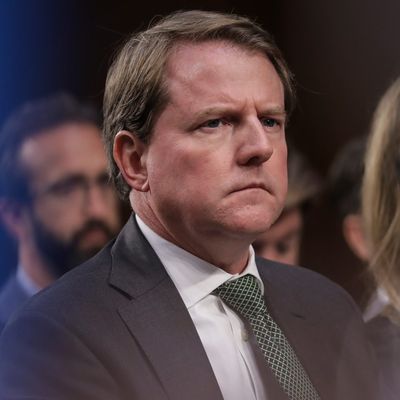
A key witness subpeonaed earlier this year by the House Judiciary Committee in its investigation of presidential obstruction of justice has been ordered to testify by a federal judge. Washington, D.C. District Court Judge Ketanji Brown Jackson firmly rejected White House claims of executive privilege with which it barred the release of documents requested from or any personal appearance by former White House counsel Don McGhan, who was suggested in the Mueller Report to have been the object of three separate presidential efforts to unlawfully interfere with his investigation (one of which involved an attempt to fire Mueller himself). Jackson’s ruling was very clear, as the New York Times reports:
Citing Congress’s constitutional power to investigate suspected abuses of power within the government, Judge Jackson wrote that the Trump administration’s “claim to unreviewable absolute testimonial immunity on separation-of-powers grounds — essentially, that the Constitution’s scheme countenances unassailable executive branch authority — is baseless, and as such, cannot be sustained.”
If sustained, Jackson’s decision could expose multiple current and former executive-branch officials to subpoena from the various congressional committees investigating Trump and his minions. But the Justice Department is certain to appeal and will request a stay on Jackson’s orders until such time as the D.C. Circuit, and probably after that the U.S. Supreme Court, has ruled on the matter, which could most definitely limit or neutralize the impact of today’s action.
But it could help provide some judicial backing for the proposition that the administration’s obstruction of Congress is itself an impeachable offense. And more immediately, some potential House witnesses that were on the fence about testifying might cite Jackson’s decision as compelling them morally, if not legally, to cooperate with Congress. The one to watch is probably former White House national security adviser John Bolton, who might have a lot to contribute to the Intelligence Committee’s investigation of the president’s efforts to pressure Ukraine to help his reelection campaign. In the longer run, maximum claims of executive privilege dating back at least to the Nixon administration may finally meet their match in the judiciary.






























